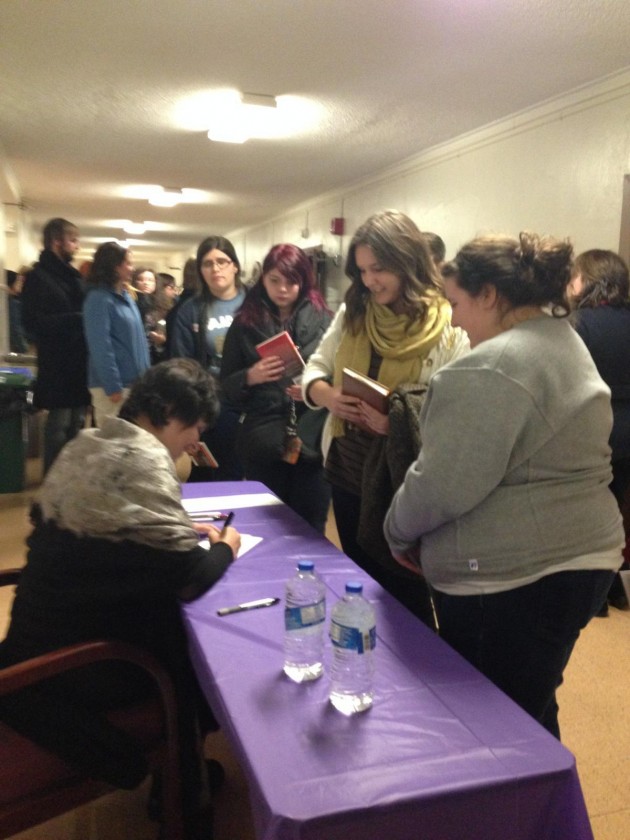
On February 10th, Tennessee Tech University hosted a luncheon and presentation with Eve Ensler, the playwright and activist, best known for her play, The Vagina Monologues and the organization arising from the play. In between a luncheon with members of previous productions of The Vagina Monologues, Eve sat down with members of the press, including myself and Becky Magura of WCTE.
In our interview, Ms. Ensler commented that she had never expected the play to be a grand hit or spark a large movement. It was, rather, a fluke inspired by a menopausal friend. Curious as to what women actually thought about their genitals, she conducted a series of more than 200 interviews. Expecting tales of great joy or sexual pleasure, she was instead greeted with confessions of victimhood. More than two-thirds of the stories she collected were about sexual violence. After its debut in 1996, the play became a smash hit.
“After every show, there were lines of women who wanted to talk to me, to tell me their stories. Most of them had never gotten to tell their stories before,” Ensler said.
In 1998, Ensler proposed that The Vagina Monologues be used as an activist piece of theater, and the profits from its production be used to fight violence against women in local communities. The V-Day movement was born. Now, communities all over the world perform The Vagina Monologues without paying royalties, and all money raised is donated to local charities dedicated to ending violence against women.
“Our goal in V-Day was always to go out of business. To end violence against women,” Ensler said. “So when our 15-year anniversary came around, and it hadn’t been stopped, we thought, ‘what’s next?'” While wondering about their new direction, Ensler was diagnosed with stage three uterine cancer. After a surgery that resembled a medical pillage, suddenly missing seven organs and seventy nodes, she says she felt finally and utterly aware of her body.
“All of these tubes and catheters coming in and out of me? I was nothing but body.”
It is the body, Ensler says, that pushed in the new direction of the V-Day movement and its offshoot, One Billion Rising.
“I was obsessed with the statistic that one in three women on the planet will be beaten or raped in her lifetime. And that’s a UN and World Health statistic. But what could we do about that?” Her body supplied the answer. Once recovered from cancer and chemotherapy, Ensler made a trip to the City of Joy, a rescue city in the Democratic Republic of Congo, sponsored by V-Day. “I just looked awful, I had no hair, no eyebrows – I looked dead,” she said. “And when they saw me, the women in the City of Joy started to dance.” She got a fond, far-away look on her face as she talked about the act of dancing.
“Dancing is firmly in your body. Dancing celebrates everything that your body does for you. Its translates thought into action and takes you and your body above ego, above all the thoughts.” She gave a small laugh. “Everybody thinks that theorizing is better or more effective than dancing. What has theorizing gotten us but statistics and no action?”
After her visit and our chats together, I keep returning to the idea of dancing as an act that reunites us with our bodies, that encourages us to better understand what we can do to change what’s wrong with the world.
I don’t know if dancing will save the world. I don’t know if the world can be saved. But, I do know that in the moment Eve Ensler wrapped her arms around me, I felt that I could. So, on Valentine’s Day, I’m dancing on South Patio, and I hope you’ll dance with me.


